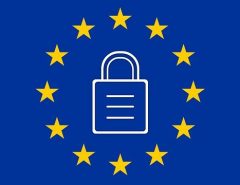Cybersecurity compliance is slowly turning out to be an inseparable part of the existing IT networks with the majority of organizations concentrating on meeting the imposed regulatory standards. The last few years have witnessed a major rise in the frequency of regulations, spanning across multiple sectors and industries. Be it the healthcare sector, manufacturing industry, BFSI, defense sector and even energy sector; cybersecurity compliance is probably the most important aspect of industrial growth as any form of non-adherence can attract massive penalties.
The Importance of Cybersecurity Compliance
Majority of credit unions are facing a predicament that compels them to meet the existing cybersecurity regulations and compliance requirements. Based on a report, at least 48 percent of surveyed enterprises are trying to figure out the actual concept of compliance while keeping up with organizational productivity. However, unavailability of resources can put an extra burden on the companies which then struggle to keep up with certain industry-specific compliance requirements. Moreover, in this customer-centric world, there are a lot of expectations regarding the quality of services, data security, and overall convenience. With enterprises looking to gain a competitive advantage over each other, it is fitting enough that a regulatory institution exists for keeping a close eye on the valued services, overall customer experience and the safety of confidential user data.
Read more: Cybersecurity and Compliance requirements: Part 1
Regulatory Compliance for BFSI
The Banking, Financial Services and Insurance (BFSI) industry deserves a special mention. To be exact, these regulations vary from one region to another but the underlining principle still involves protecting customer information. Based on the compliance standards like GDPR, an organization must be able to protect the information associated with the data subjects and notify them in case of a data breach. Therefore, an insurance-specific firm must abide by these guidelines and the compliance requirements must aim at safeguarding customer details. Based on the growing inclination towards regulatory compliance, Department of Financial Services (DFS), New York State has readily proposed a new set of guidelines and cybersecurity regulations for the insurance companies.
Compliance and Regulations for the Energy Sector
Regulatory compliance for the energy sector requires us to understand the functioning of Federal Energy Regulatory Commission (FERC). This regulatory standard works in close association with the Critical Infrastructure Protection (CIP); that focuses more on protecting cyber assets. The NERC CIP standards take into account authentication, delegation, access-control, reporting of access to critical infrastructure and continuous monitoring amongst many other cybersecurity aspects. Energy sector compliance aims at protecting control units like ICS and SCADA in addition to safeguarding personal details of the data subjects. These regulations also span across a host of electric utility operators and associated companies. Each one of the existing standards are drafted by the North American Electric Reliability Corporation (NERC).
Regulatory Compliance for the Defense Sector
The defense sector is expected to have the most stringent compliance guidelines based on the standards compiled by the United States Department of Defense (USDOD). Every cybersecurity requirement related to the defense sector must meet the Defense Federal Acquisition Regulation Supplement (DFARS) guidelines and the Procedures, Guidance and Information (PGI) standards. Keeping up with these regulations requires the third-party services providers to meet or rather comply with the existing guidelines which typically aims at protecting sensitive information.
Regulatory Compliance for the Retail Industry
The retail industry must follow regulations from the Payment Card Industry Security Council’s Data Security Standards (PCI DSS). This authority issues security standards to be followed by all retail organizations who use card payment methods and may thus store card information.
How Seqrite Helps with Cybersecurity Compliance?
Seqrite helps organizations keep up with the compliance requirements by offering robust security products and solutions for all industries. Seqrite’s Endpoint Security and Unified Threat Management Solution ensures that both data and assets are kept under strict vigil so that no compliance is faltered. Seqrite’s EPS clubbed with Encryption solutions and DLP feature allows enterprises to keep a close eye on the confidential data sets. Cyber security compliance should be a critical organizational goal and enterprises must conform to the regulatory standards. Investing in high-end solutions like those from Seqrite can assist companies in this conformance.
As an IT security partner for your business, Seqrite provides comprehensive endpoint security from advanced cyber threats. To know more, visit our website or




